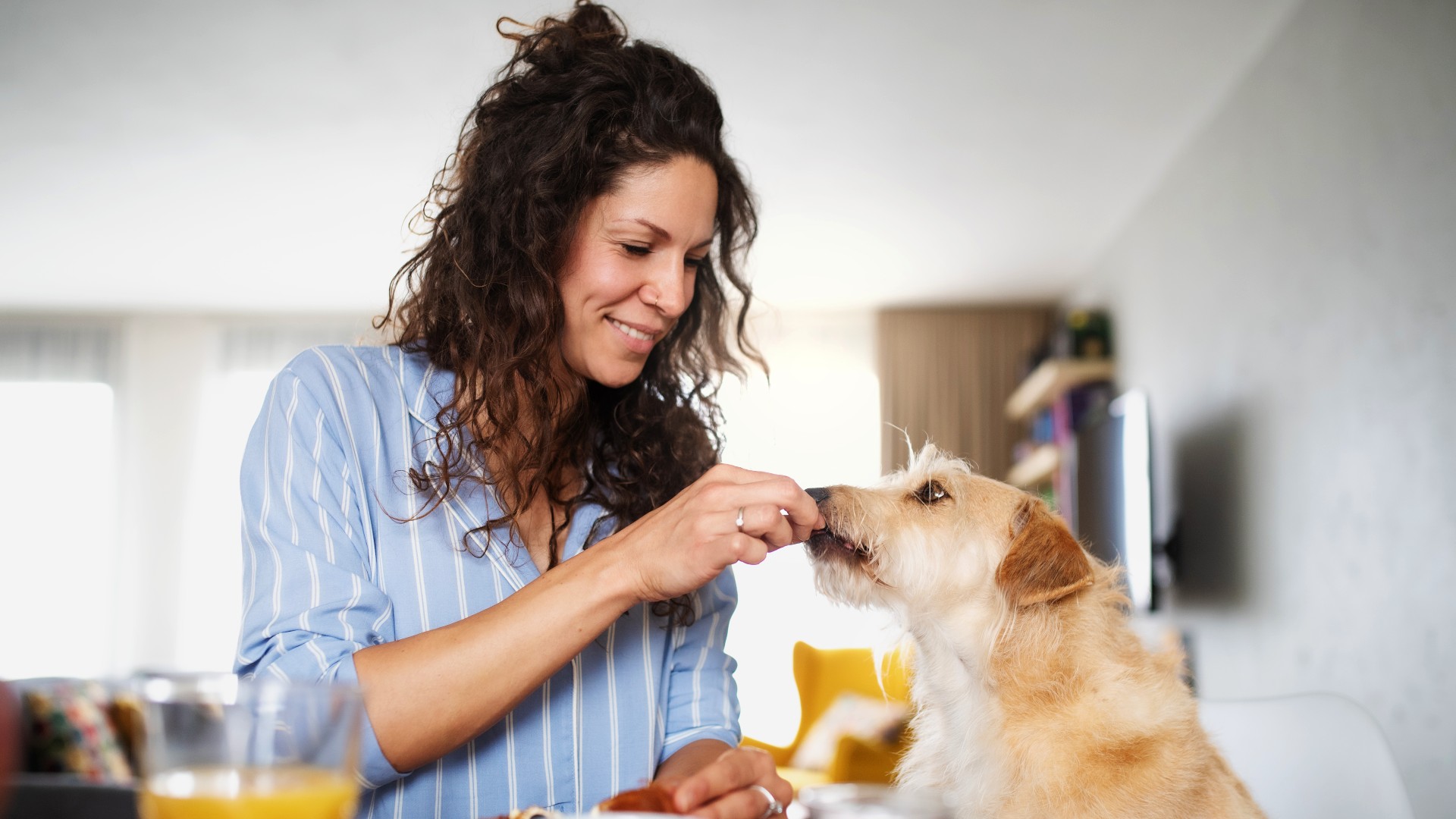How much does your dog love you? Not enough to feed you, a new study reveals
It turns out that if the roles were reversed, your pooch may not be quite as willing as you are to share what’s on their dinner plate

Get the best advice, tips and top tech for your beloved Pets
You are now subscribed
Your newsletter sign-up was successful
When it comes to the question of ‘how much does your dog love you?’ we reckon it’s a safe bet to say a whole heck of a lot! But before your heart goes all warm and fuzzy, there’s one situation where they might not be so keen to go the extra mile for you - and that’s when it comes to paying you back after you’ve fed them.
Numerous studies have shown that dogs will return favors to other dogs in the form of gifting them food, will help their owners when they’re in trouble, and can distinguish between helpful and unhelpful people.
Based on this previous research, comparative psychologist Jim McGetrick thought there was a high chance that dogs would happily reciprocate a good deed done by their humans. But McGetrick and his team at the University of Veterinary Medicine in Vienna were in for a surprise when their experiment didn’t quite play out the way they thought it would.
Training pet dogs to use a button that would enable them to access food from a dispenser, McGetrick placed each pup in an enclosure and a human they didn’t know in another enclosure that was visible to the dog. The scenario was repeated in two different ways.
The first time, each dog watched as the stranger pressed a button that released food into the dog’s enclosure. On the second run-through, the people were swapped out and a new stranger was brought into the human enclosure who didn’t press the button.
- Acupuncture for dogs with chronic illness could improve their quality of life
- Raw food diets for dogs could pose a risk to public health
- Why grumpy dogs are cleverer than cheerful canines
McGetrick and his team then repeated the exercise, giving the dog’s the opportunity to offer food to the same two human partners they’d worked with in the previous scenarios. He was surprised to discover that the dogs were no more likely to press the button to provide food to the helpful human than they were to the stingy one. When asked why this might be, McGetrick has a theory:
“In terms of dog domestication and the evolution of dogs as a species, their cooperativeness with humans might not be related to this form of cooperation: this reciprocal cooperation, where I help you and then you help me at some point in the future,” he says.
Get the best advice, tips and top tech for your beloved Pets
McGetrick is quick to stress that just because the dogs didn’t reciprocate in the experiment, it doesn’t rule out reciprocity by dogs with humans.
“I’m not sure that the dogs understood that another individual was helping them,” he explains. “It seemed they certainly saw the human. But even if the dogs look, they might see the human’s face, they might see the human’s hand pressing the button, but they might never register that, “Oh, that’s how I’m getting the food,” or “Oh, the human is doing something for me.” It’s very difficult to know what they understand about the situation.”
The fact that the dogs didn’t know the humans involved may also have come into play, with McGetrick stating that more research is needed to see if they would reciprocate with a human they know well.

Kathryn is a freelance writer who has been a member of the PetsRadar family since it launched in 2020. Highly experienced in her field, she's driven by a desire to provide pet parents with accurate, timely, and informative content that enables them to provide their fur friends with everything they need to thrive.
Kathryn works closely with vets and trainers to ensure all articles offer the most up-to-date information across a range of pet-related fields, from insights into health and behavior issues to tips on products and training.
When she’s not busy crafting the perfect sentence for her features, buying guides and news pieces, she can be found hanging out with her family (which includes one super sassy cat and a kitten), drinking copious amounts of Jasmine tea and reading all the books.
She has written for a range of publications, including Fit&Well, Top Ten Reviews, LiveScience, Goodto, and Product Hunt.
